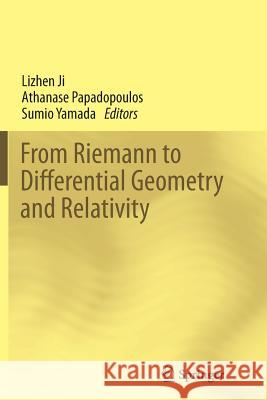From Riemann to Differential Geometry and Relativity » książka
topmenu
From Riemann to Differential Geometry and Relativity
ISBN-13: 9783319867656 / Angielski / Miękka / 2018 / 647 str.
Kategorie:
Kategorie BISAC:
Wydawca:
Springer
Język:
Angielski
ISBN-13:
9783319867656
Rok wydania:
2018
Wydanie:
Softcover Repri
Ilość stron:
647
Waga:
0.99 kg
Wymiary:
23.32 x 16.21 x 3.58
Oprawa:
Miękka
Wolumenów:
01
Dodatkowe informacje:
Wydanie ilustrowane











